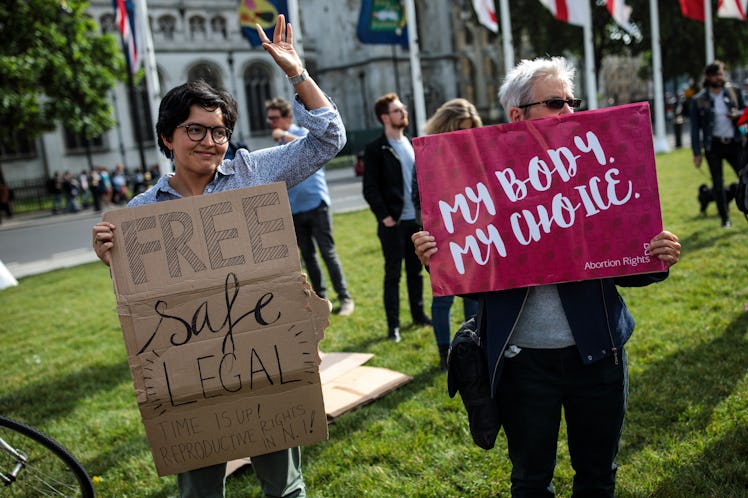
The Supreme Court Passed On A Major Abortion Case (For Now)
As state legislatures continue to propose and pass anti-abortion laws, Americans have had their eyes on the Supreme Court. Anti-abortion advocates have expressed hope that the restrictions will lead to a Supreme Court challenge over Roe v. Wade, the 1973 decision establishing abortion rights, but now that the Supreme Court passed on Indiana's abortion law, it seems that the court may move forward a bit slowly on the matter.
According to CNN, the Supreme Court on Tuesday, May 28 upheld an Indiana law requiring that fetal remains following an abortion be buried or cremated. However, it declined to take up a provision to the law barring abortion based on a fetus' sex, race, or disability, avoiding a major ruling for the time being and leaving the decision of a lower court in place.
The law was signed in 2016 by then-Gov. Mike Pence, but it was struck down in April 2018 by an appeals court, with Judge William Bauer ruling that the law was unconstitutional. According to CNN, Bauer wrote in his decision that the provisions of the law preventing women from receiving abortions in certain situations "clearly violate" what he said was a "well-established Supreme Court precedent."
The ruling is mixed news — on the one hand, the ruling leaves the lower court's block in place and indicates that the court may not be interested in weighing in on abortion. On the other, at least one Supreme Court justice thinks the court will have to take up abortion soon.
Justice Clarence Thomas wrote on Tuesday that while he supports the court's decision to not to take up the challenge, he believes that it will have to take up the issue of abortion in the near future. In his concurring opinion, he wrote,
Although the Court declines to wade into these issues today, we cannot avoid them forever. Having created the constitutional right to an abortion, this court is dutybound to address its scope.
His comments come amid a spate of anti-abortion legislation that has passed around the country. Alabama's new abortion law, for example, bans the procedure in almost all cases, including in cases of rape or incest. Ahead of the vote on the bill, Alabama's Lt. Gov. Will Ainsworth made it clear in a statement on May 9 that overturning Roe is his state's goal. The statement said in part:
It's important that we pass this statewide abortion ban legislation and begin a long overdue effort to directly challenge Roe v. Wade. ... Now that President Donald Trump has supercharged the effort to remake the federal court system by appointing conservative jurists who will strictly interpret the Constitution, I feel confident that the U.S. Supreme Court will overturn Roe and finally correct its 46-year-old mistake.
Other states like Georgia have passed what are known as "heartbeat bills" that prohibit abortion once a fetal heartbeat is detected, which is around the six-week mark — before many people even know they are pregnant.
Many of the bills are already being challenged, which makes it seem as though there's only a matter of time before the matters make it before the Supreme Court. When, though? Only time will tell.